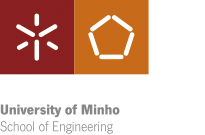Monday, 4/30/2018
Interview cycle to the members of the EEUM’s
Advisory Council. In this edition, José Luís Encarnação, Professor at the Technische
Universität Darmstadt, in Germany.
The Advisory
Council of the School of Engineering of the University of Minho (EEUM) is the
consultative body to advise the School’s government bodies regarding strategic
definition subjects. Composed of nine personalities of recognised merit in the
fields of their activity, these members have the mission to advise the School
on issues related to pedagogical, scientific and interaction with society
activities. In this edition, we spoke with José Luís Encarnação, Professor at
the Technische Universität Darmstadt, in Germany.
How important is it to be
a member of the EEUM’s Advisory Council?
I have had a good and intensive relationship with the University of
Minho and EEUM for many years. My professional and academic life is in Germany,
where I have lived and worked since 1959. Among many other things, I founded a
Cooperation Institution in R&D and Innovation with Industry, called Zentrum
für Graphische Datenverarbeitung (ZGDV), in Germany (Darmstadt). This led to
the installation of the “Centre for Computer Graphics” (CCG) in Guimarães,
which has had a very positive institutional path, and is now a very successful
UMinho’s interface institution. Being now a member of EEUM's Advisory Board
demonstrates, on the one hand, that our cooperation is intensive and successful,
and on the other hand that the personal relationships with professors and the EEUM’s
management team are constructive and trustworthy.
Overall, which are the
contributions of an external member to this Advisory Council?
As an external member of this Advisory Council, I bring all my
experience, all my contacts and all the lessons learned during more than four
decades as a Professor at German Universities (Berlin, Saarbrücken and
Darmstadt) and as Head of Department and/or Director at I&R institutions
(Heinrich Hertz Institute in Berlin and Fraunhofer Gesellschaft in Darmstadt)
to the EEUM’s service, to advise the Presidency of the EEUM and to support
their work the best I can.
What is the balance of the
evolution of the EEUM in recent years, under the vision of the current Advisory
Council?
In my personal opinion, the evolution of EEUM in recent years has been
very positive, especially regarding the financial and operational difficulties
with which the Presidency of the EEUM has been confronted. In spite of all
this, the EEUM is guaranteeing a good position in almost all the interesting
and relevant “rankings” for such a School.
What is the impact of the
cooperation of the institutions in which you have been involved with the EEUM?
The institution I have been most involved with in cooperation with the
EEUM is the aforementioned CCG. I am greatly satisfied by the activities and
results achieved by the CCG, both nationally and internationally.
How can the School of
Engineering capitalise the investment on entrepreneurship and innovation and
its strategic link to regional and national industry?
In this case, the EEUM has two important contributions:
(a)
– “producing” highly qualified personnel (HR),
knowledgeable in new technologies and new trends, for the current labour
market. The EEUM should think not only of doctorates, but also of graduate
engineers (with first cycle degree and master programmes)
(b)
– “being an outsourcing supplier”, strategic for the
regional and national industry based on the know-how and qualification of its
faculty. To do so, it must also be involved in I&R projects on current
themes, technologies and trends of interest to the industry, carrying out these
projects in direct cooperation with industry whenever possible.
What challenges does
industry 4.0 pose to engineering education?
Certain technologies,
especially technologies and applications using or integrating ICT technologies,
are becoming more rapid and entering the market faster than university
curricula can adapt. Therefore, in certain themes (Industry 4.0, Internet of
Things, etc), the knowledge and the necessary experiences are not yet part of
the education curricula, and there is a certain gap between what the market
demands and what the Universities teach. Many countries are now adopting a
model that Medicine has been carrying out for a long time with its Hospital
Universities, by installing the “Teaching Factories” (also called “Learning
Factories”). The EEUM should also take a stand in this challenge.
+
info: https://www.tu-darmstadt.de/index.en.jsp

